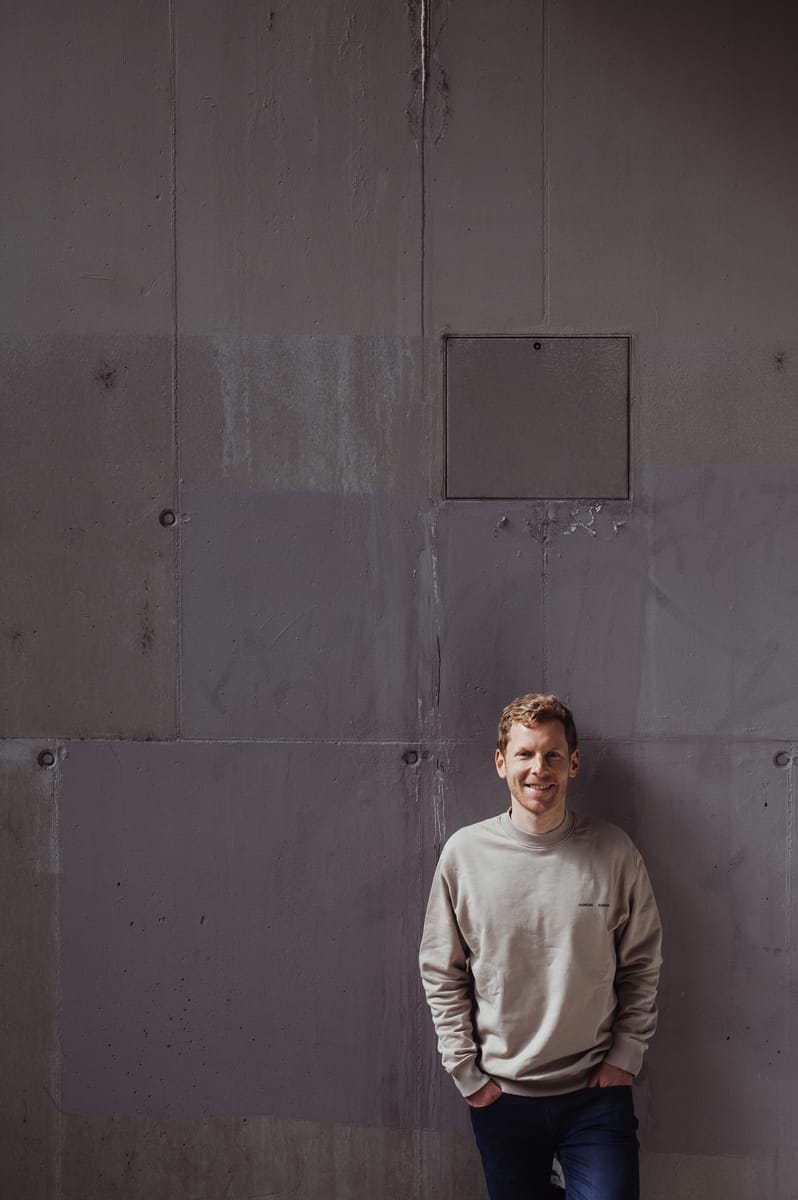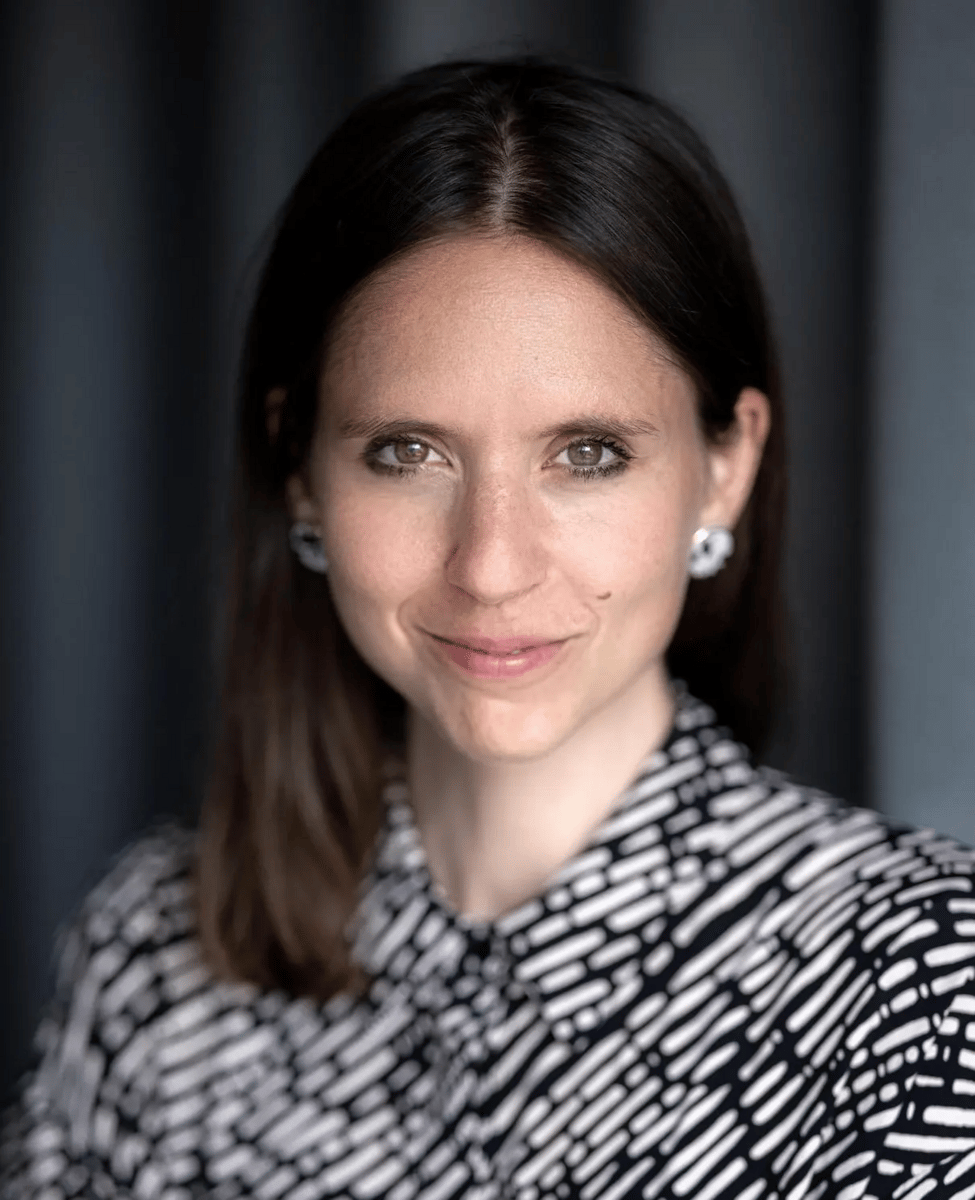Dear hustlers, founders, operators and visionaries,
When a founder hits their limit, the bottleneck isn’t just the market, the product, or the team - it’s often themselves. In our conversation this week, Jake Bornstein returns to our show to push deeper into the uncomfortable truths of growth, coaching, and leadership.
He challenges the idea that development is a luxury and reframes it as a high-stakes investment with outsized returns. From frameworks like minimum viable structure to the discipline of radical responsibility, Jake offers not only the intellectual clarity but also the emotional honesty that scaling demands. Exclusively for our newsletter subscribers, Jake has shared additional insights below.
In the meantime: Follow the Gradient and stay tuned!
PS: Has this e-mail been forwarded to you? Sign up here.
How to transform your leadership
What you will get out of this episode
In our conversation, Jake shares:
How to calculate the real value of coaching and personal growth in hard business terms.
How to choose the right coach, modality, and cadence when time and money are tight.
Why radical responsibility transforms team dynamics and removes the trap of blame.
How to use practical frameworks like “minimum viable structure” to cut through chaos and gain clarity.
And much more!
From our Partners
Learn to Build Business Ownership in 3 Days
“Almost no one in the history of the Forbes list has gotten there with a salary. You get rich by owning things.” –Sam Altman
If you’re tired of inflation eating your paycheck and AI eyeing your role, this is for you.
Main Street Millionaire Live is a 3-day virtual crash course where real operators will walk you through buying and running real businesses.
It’s live deep dives, fireside chats, and practical workshops, and you’ll leave with a plan of action across deal sourcing, financing, negotiation, scaling: the whole ownership stack.
Plus, you’ll get $1k+ worth of digital products, just for showing up. We probably should’ve charged a lot more for this… Too late now.
Our main take away’s
Your growth sets the ceiling for your company’s growth: Jake reminds us that clarity, resilience, and the ability to hold complexity aren’t soft skills — they’re the hidden levers of scale. Without investment in your own development, you risk becoming the bottleneck.
Measuring coaching means tracking new behaviors, not vague feelings: Success isn’t abstract. It shows up in better hires, sharper decisions, and fresh strategic moves. If nothing’s changing, you’re not growing — and maybe not with the right coach.
Structure doesn’t kill flexibility; it enables it: The minimum viable structure framework shows that specificity about roles, ownership, and cadence prevents politics, frees up focus, and unlocks real adaptability. Vagueness is the enemy of speed.
Radical responsibility reframes leadership from fairness to effectiveness: Founders often waste energy on what people “should” be doing. The breakthrough comes when you shift to asking, “How am I creating these conditions?” This turns frustration into agency and catalyzes transformation.
Reflection is practice, not theory: Awareness builds in the small moments — the pause before reacting, the context set at the start of a meeting, the reframing of everyday interactions as practice grounds. The founder who learns to practice in real time gains leverage over both chaos and complexity.
How to reach out to Jake
Our first episode with Jake: Most startups die by suicide, not murder
Exclusive from Jake
Jake, in our podcast we mainly talked about founders getting coached. But what about the flip side? How can founders learn to coach their own team instead of just giving advice or solving everything themselves?
The foundational two things founders (and any manager) can work on in this regard is getting good at open-ended issue diagnosis and forward-looking visualization.
For diagnosis, the key is getting into a genuinely open exploration of gaps between expectations and reality - eg. something was delivered late or in a form that didn’t match what you thought. Most people respond to this with excuses or apologies or a mix of both - these are useless. The key here is learning to move beyond frustration, quick fixes or a disciplinary orientation to real curiosity. What happened? What did they understand the task to be? What came up? What tradeoffs did they make along the way? What was potentially harder than they expected, at a personal and practical level? You want to come out with a clear shared view of where the breakdowns occurred and why – this is going to be the foundation of any coaching (or effective management) you’ll do from there.
The second is forward-looking visualization, which is essentially the same as diagnosis but proactive. Are you both fully clear on what needs to be achieved? What good looks like? What the most likely risks and tradeoffs are to be navigated ahead of time? This tends to be underspecified, especially given the speed at which most startups run, and the unchecked assumptions baked in at the start of any project is almost always the first layer you run into in diagnosis when things fail.
What is the mindset shift a founder needs to make in order to stop leading by fixing and start leading by coaching?
It’s mostly learning to trust that the time invested in the above process of diagnosis and alignment / visualization will actually solve problems. For experienced managers this is second nature because they just have more reps having actually seen it work (and they’ve gotten better at doing it). Like any new skill, it will be clunkier at first and it likely will be much faster to solve the problem directly yourself. You have to take the leap of faith that the investment is worth it.
What are two or three books you find yourself recommending over and over to founders, not just because they are smart, but because they actually change how people lead or think?
My book recommendations tend to be more personal to individual contexts, but if we’re going for broad business utility I think Ben Horowitz’s “The Hard Thing about Hard Things” is one of the more practically useful (and experientially grounded) descriptions of the founder seat and some of the tools that can help.
You have said that as companies grow, founders need to hold more emotional and intellectual complexity. What does that actually look like in practice, and how do you help someone build that capacity?
This probably deserves an entire essay or podcast episode on its own. At a headline level, as you grow choices tend to shift from good / bad to seemingly unresolvable dilemmas between competing goods. More stakeholders, more initiatives in flight, more resource tradeoffs, more time scales you have to address simultaneously – these all change the nature of the problems to solve from technical problems (how do I do xyz) to developmental problems (how do I hold a space from which I can find creative syntheses of competing needs).
Part of this is intellectual fluidity - learning to look at each issue from more angles, working out subtle blindspots in your own mental models, getting better at thinking in bets and learning to intervene at the level of the “business as system” rather than just the problems at hand.
Part of this is emotional capacity - being able to hold more bad feelings (both yours and others) without having to rush to judgement to feel better.
Part of this is deeper clarity about what really matters - learning to distill the key principles and insights that are non-negotiable, and which things feel essential but can actually be held more lightly.
Getting there across these capacities is a long journey. It means consistently interrogating what you really are trying to do (v the fears you’re trying to avoid), putting designs in place to achieve them (with appropriate sequencing across time) such that you’re moving more from a perspective of capacity building than problem solving, and then practicing it consistently.
You have coached across hundreds of growth journeys. What is one subtle pattern you have noticed that predicts whether a founder will scale themselves successfully or burn out?
Their ability to introspect under stress. Without that it’s hard to learn fast enough to keep pace with what will be asked of them or develop the discernment to separate out ego-needs from business needs.

Follow the Gradient is a weekly newsletter and podcast by the serial founders Melanie Gabriel & Christian Woese about how to build a business from Europe while staying sane.












